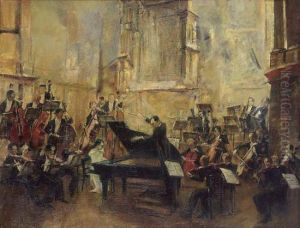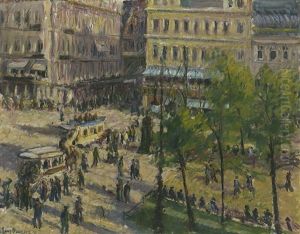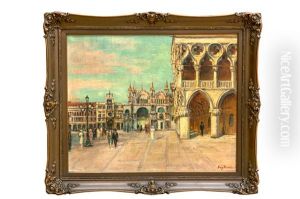Georg Brandes Paintings
Georg Brandes was a Danish critic and scholar, born in Copenhagen on February 4, 1842. A towering figure in the realms of literature, philosophy, and European thought, Brandes was instrumental in introducing modernist trends and ideas into Danish and Nordic literature. His influence extended beyond literary criticism; he was a pivotal figure in the cultural and intellectual life of Europe at the turn of the 20th century, advocating for realism and naturalism in literature, and promoting the works of a wide range of European authors to the Nordic audience.
Brandes completed his education at the University of Copenhagen, where he was deeply influenced by the works of Shakespeare and Goethe, which would later play a significant role in his critical writings. In 1871, he delivered a series of lectures at the University of Copenhagen, which were later published as 'Main Currents in 19th Century Literature'. In these lectures, Brandes argued for the importance of literature addressing contemporary issues and realities, a stance that was revolutionary at the time and laid the groundwork for the modernist movements in Scandinavian literature. This work is often considered his most significant contribution, charting the emergence and development of European realism and naturalism.
Throughout his career, Brandes maintained correspondences and personal connections with a number of leading European intellectuals and writers, including Friedrich Nietzsche, Henrik Ibsen, August Strindberg, and Sigmund Freud. His advocacy for the freedom of thought, gender equality, and his critique of religion put him at odds with the conservative elements of Danish society, but also established him as a central figure in European intellectual circles.
Brandes's works extended beyond literary criticism. He was also a keen political commentator, advocating for liberalism and socialism, and his writings touched upon a wide range of topics from politics to philosophy. Despite facing opposition and controversy for his radical ideas, Brandes's influence on Danish and European thought remained profound until his death on February 19, 1927, in Copenhagen. His legacy is that of a catalyst for change, who played a crucial role in the transition of Nordic literature from romanticism to realism and modernism.


